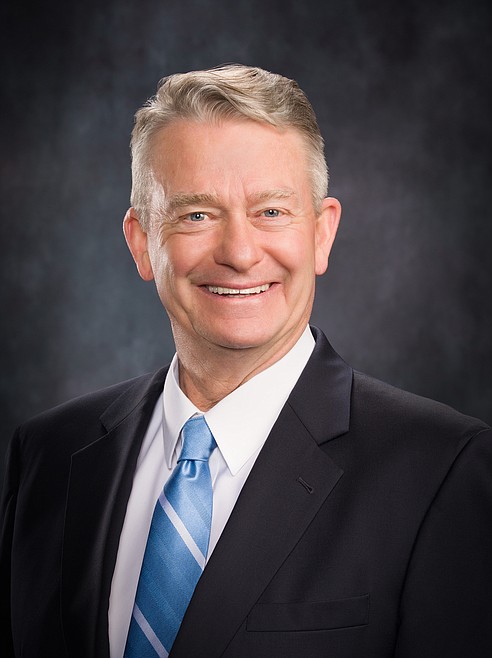Governor calls in reinforcements
Gov. Brad Little described his Monday visit to the intensive-care unit at a Boise hospital as “heartbreaking.”
Patients, young to old, and two pregnant women, were struggling to breathe. Most, he emphasized, were unvaccinated.
“I wish everyone could see what I saw in the ICU last night,” he said Tuesday.
The situation is so dire, he said, that only four adult ICU beds were available out of 400 in the state. Doctors and nurses are exhausted and equipment and resources are at a breaking point.
Kootenai Health on Tuesday reached a record 97 COVID-19 patients, 35 requiring intensive care. Last week, it said it converted a resource center into a 22-bed care unit to prepare for more coronavirus patients.
“We’ve reached a point in the pandemic we have not been before,” Little said during an announcement on Tuesday.
To help, Little said he is adding up to 370 additional personnel to assist hospitals with the surge. He’s mobilizing the National Guard again, with up to 150 guardsmen returning to support medical facilities.
Another 200 medical and administrative personnel will be available to Idaho through a contract with the U.S. General Services Administration, and a 20-person Department of Defense medical response team will be deployed to North Idaho.
He also, again, called on Idahoans to get vaccinated.
“Our health care system is not designed to withstand the prolonged strain caused by an unrestrained global pandemic. It is simply not sustainable,” he said. "Please choose to receive the vaccine now to support your fellow Idahoans who need you."
Little has refrained from issuing any vaccine or mask mandates.
In Idaho, about 735,000 people age 12 and older are fully vaccinated, per the state's website. About 58,000 people in Kootenai County are fully vaccinated, which is 40% of the 12 and older population.
Little said the state is “dangerously close" to activating crisis standards of care, which could even mean being turned away at a hospital or someone deciding who can be treated and who can't.
“This affects all of us, not just patients with COVID-19,” Little said.
He pointed out several steps the state has taken recently. Last week, it announced plans for COVID-19 monoclonal antibody treatment facilities in North Idaho, eastern Idaho and the Treasure Valley.
Little directed $10 million in American Rescue Plan Act funds to address constraints and emerging needs in Idaho hospitals and skilled nursing facilities, and the state is waiving temporary licensing fees for retired or inactive nurses so they can activate licenses and re-enter the field more easily "during this unprecedented time."
The state is also removing barriers so nursing students can more quickly enter the workforce.
He also directed $30 million toward expanded COVID-19 testing in Idaho K-12 schools to help meet the need.
“I hope it will be enough for us to avoid statewide crisis standards of care, but we are teetering on the brink and there is only one real solution — we need more Idahoans to choose to receive the safe, effective COVID-19 vaccine now,” he said.
He thanked those who have received the vaccine and said those who have not, even the healthy, should consider getting the vaccine to reduce the chances they might unknowingly carry and spread the virus.
The vaccine, he said, "is our ticket out of the pandemic."

